How to Prevent Teeth Grinding During Sleep: Practical Tips for Better Sleep
- 1. What is Teeth Grinding?
- 2. Causes of Teeth Grinding During Sleep
- 3. How to Prevent Teeth Grinding During Sleep
- 4. Treatment Options for Teeth Grinding
- 5. Real-Life Stories on Preventing Teeth Grinding
- 6. When to Consult a Dentist About Teeth Grinding
1. What is Teeth Grinding?
Teeth grinding, also known as bruxism, refers to the act of clenching or grinding your teeth, often unconsciously, during sleep. It is a common problem that can lead to significant dental damage, headaches, jaw pain, and other unpleasant symptoms. While it may seem harmless at first, persistent teeth grinding can cause wear on your teeth, temporomandibular joint (TMJ) issues, and even disrupt your quality of sleep.
For many people, teeth grinding occurs during sleep, making it harder to detect until its effects are noticeable, such as worn-down teeth or jaw pain. Understanding how to prevent teeth grinding during sleep is essential to maintaining healthy teeth and overall well-being.
2. Causes of Teeth Grinding During Sleep
Teeth grinding can occur for several reasons, ranging from stress to underlying health issues. Here are the primary causes:
Stress and Anxiety
One of the leading causes of teeth grinding is stress. Many people grind their teeth during sleep as a physical response to anxiety or mental strain. Over time, this can lead to significant wear and damage to the teeth.
Sleep Disorders
Sleep apnea, snoring, and other sleep disorders can increase the likelihood of teeth grinding. These conditions often lead to disruptions in breathing patterns during sleep, which can trigger grinding as a response.
Misaligned Teeth
If your teeth are misaligned, you may unknowingly grind them in an attempt to achieve a comfortable bite. This can contribute to both bruxism and discomfort during sleep.
Other Factors
Medications, alcohol consumption, and even caffeine can play a role in causing or worsening teeth grinding. Certain medications, like antidepressants, can have bruxism as a side effect. If these triggers are not addressed, they may make it difficult to prevent teeth grinding during sleep.
3. How to Prevent Teeth Grinding During Sleep
There are several effective strategies you can implement to prevent teeth grinding while you sleep:
1. Manage Stress and Anxiety
Since stress is a major contributor to teeth grinding, practicing relaxation techniques such as meditation, deep breathing exercises, or yoga before bedtime can help reduce the tension that leads to grinding. Additionally, seeking therapy or counseling for chronic stress or anxiety can also play a role in reducing nighttime teeth grinding.
2. Use a Night Guard
A night guard is a custom-made mouthpiece that fits over your teeth while you sleep. It provides a protective barrier, preventing your teeth from grinding against each other. Consult with your dentist to get a mouthguard specifically designed for your needs, ensuring a comfortable and effective solution.
3. Correct Teeth Misalignment
If misaligned teeth are the cause of your grinding, addressing this issue with your dentist could help reduce or eliminate the problem. Orthodontic treatments or other dental adjustments might be necessary to realign your bite, preventing the grinding that occurs during sleep.
4. Reduce Caffeine and Alcohol Consumption
Reducing your intake of caffeine and alcohol, particularly in the evening, can help minimize the likelihood of teeth grinding. Both substances can disrupt your sleep cycle and increase muscle tension, leading to more grinding at night.
5. Develop a Relaxing Bedtime Routine
Developing a calming pre-sleep routine can help your body relax and prepare for restful sleep. Avoiding screen time before bed, taking a warm bath, or reading a book can all contribute to better sleep and reduce teeth grinding.
4. Treatment Options for Teeth Grinding
If you are struggling to prevent teeth grinding on your own, there are several professional treatment options available:
1. Behavioral Therapy
In cases where stress or anxiety is a primary factor in teeth grinding, behavioral therapy or cognitive behavioral therapy (CBT) may be recommended. Therapy can help address the root causes of bruxism and teach you relaxation techniques to reduce grinding.
2. Botox Injections
For severe cases of bruxism, Botox injections may be used to reduce the intensity of muscle contractions associated with teeth grinding. This treatment can provide temporary relief for those who cannot manage their grinding through lifestyle changes alone.
3. Dental Work
If teeth grinding has caused significant damage, dental work such as crowns, fillings, or other restorative treatments may be necessary to repair the damage and prevent further issues.
5. Real-Life Stories on Preventing Teeth Grinding
Many people have successfully managed their teeth grinding by making lifestyle changes and seeking professional help. For example, John from New York shared his experience with using a night guard: “I had no idea I was grinding my teeth until my dentist showed me the signs. After getting a custom mouthguard, I noticed a huge difference in my sleep quality and no more jaw pain in the morning.”
6. When to Consult a Dentist About Teeth Grinding
If you've tried at-home remedies and still experience symptoms of teeth grinding, it may be time to consult a dentist. A dentist can help identify the underlying cause of your bruxism and recommend the best course of treatment for you. For those experiencing pain, severe wear on teeth, or trouble sleeping, professional evaluation is essential.
Learn more about how to prevent teeth grinding and find a suitable treatment by visiting Dentistry Toothtruth.

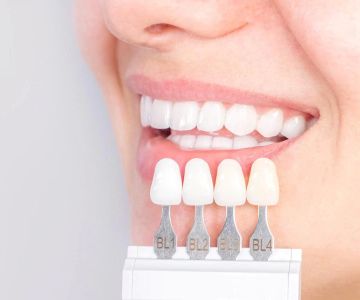

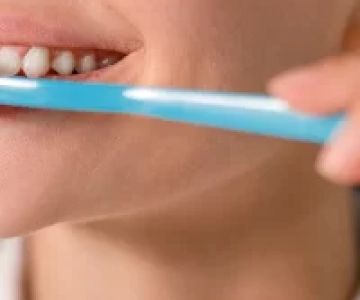
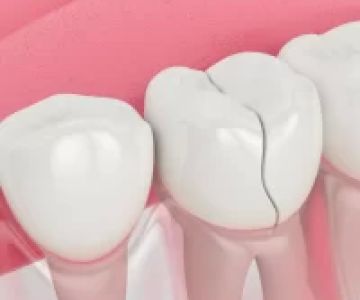
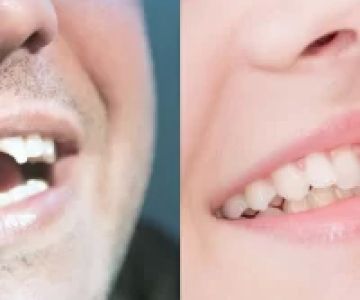
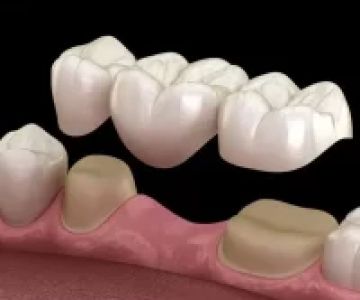
 Woodbridge Dental Group and Orthodontics4.0 (265 review)
Woodbridge Dental Group and Orthodontics4.0 (265 review) Village Dentistry4.0 (130 review)
Village Dentistry4.0 (130 review) Gentle Dental Downtown Portland4.0 (123 review)
Gentle Dental Downtown Portland4.0 (123 review) Ossen Stephen M DDS5.0 (4 review)
Ossen Stephen M DDS5.0 (4 review) Nu Smile Aligner5.0 (1 review)
Nu Smile Aligner5.0 (1 review) Smiles Divine Dental4.0 (25 review)
Smiles Divine Dental4.0 (25 review) The Importance of Oral Health Education During Pregnancy for a Healthy Pregnancy
The Importance of Oral Health Education During Pregnancy for a Healthy Pregnancy Best Tips for Brushing Your Teeth Properly for Healthy Gums: Essential Techniques for Oral Health
Best Tips for Brushing Your Teeth Properly for Healthy Gums: Essential Techniques for Oral Health Why Skipping Dental Checkups Can Lead to Bigger Oral Health Problems
Why Skipping Dental Checkups Can Lead to Bigger Oral Health Problems Advantages of Porcelain Dental Restorations
Advantages of Porcelain Dental Restorations How Can Diabetes Cause Tooth and Gum Problems? Preventing and Managing Oral Health Issues
How Can Diabetes Cause Tooth and Gum Problems? Preventing and Managing Oral Health Issues Healthy Habits for Promoting Good Oral Health and Hygiene: Tips for a Healthy Smile
Healthy Habits for Promoting Good Oral Health and Hygiene: Tips for a Healthy Smile